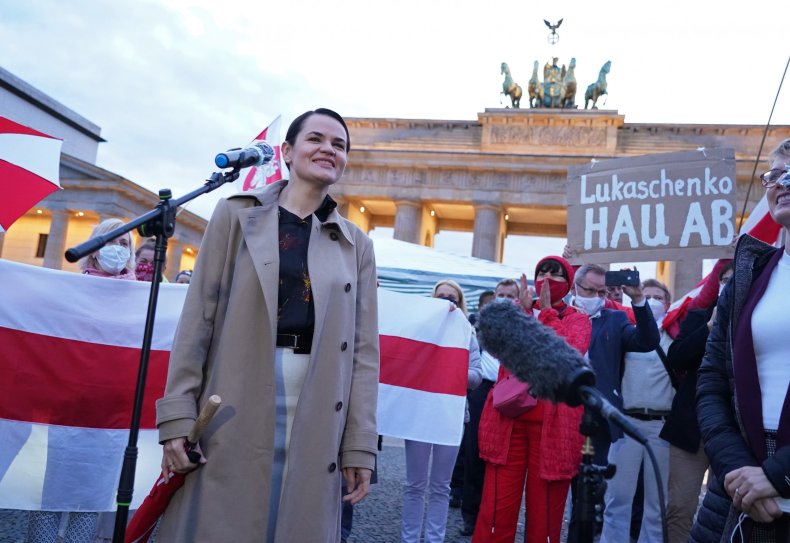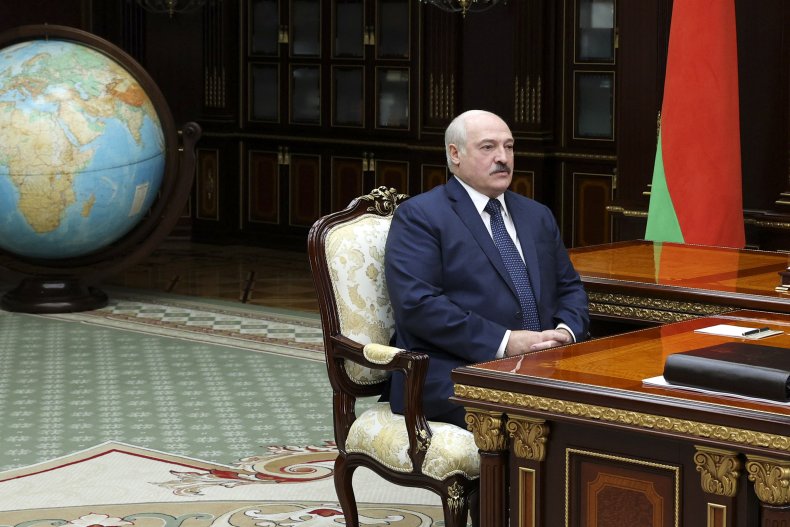New Belarus Law Gives 2-Year Prison Sentence For Posting 'Banned Information'
In the latest move to crack down on the opposition and maintain power, Belarusian President Alexander Lukashenko signed a new law that would penalize protestors with up to years-long prison sentences.
In Belarus, unauthorized demonstrations were previously punishable by fines or short stints in jail ranging from a few days to two weeks. Now, Lukashenko hopes to punish his detractors and discourage future protests with new penalties of up to three years in jail.
Belarus captured the world's attention last August when at least 500,000 people participated in months of protests against Lukashenko's reelection to a sixth term, an outcome largely seen as rigged. Belarusian authorities responded to the uprising with a vicious crackdown that resulted in 35,000 arrests and thousands more beaten by police.
International eyes were on Belarus again when the country diverted a Ryanair flight carrying a dissident from Greece to Lithuania to Minsk. Journalist Raman Pratasevich, 26, was seized and has since been shown in several videos on state TV, appearing to give coerced, tearful lamentations for his activities and praising Lukashenko.
For more reporting from the Associated Press, see below:

The new bill signed by Lukashenko also toughens punishment for the "rude violation of public order" from three years to five years in prison. The authorities have widely leveled those charges against protest participants.
The legislation also introduces two-year prison terms for posting "banned information," such as calls for the government's ouster, on the web.
It follows up on another law approved by Lukashenko last month that bans news media from doing live reports on unauthorized demonstrations and allows the Information Ministry to shut down a media organization without a court order.
Belarusian authorities have relentlessly cracked down on journalists, including blocking several major news websites and outlawing opposition-leaning messaging app channels as extremist.
The European Union and the United States have responded to the clampdown by slapping sanctions on Belarusian officials involved in allegedly rigging the August vote and repressions against the opposition. Outraged by the Ryanair flight's diversion, the EU also has slapped Belarus with new restrictions, barring the country's flag carrier from its skies and airports and advising European airlines to avoid the Belarusian airspace.
On Tuesday, diplomats from the EU, the U.S., the U.K., Switzerland and Japan met with Belarusian Foreign Minister Vladimir Makei.
In a statement issued after the meeting, they said they emphasized to Makei that "the crisis in Belarus is escalating: the persecution of the opposition, media, civil society, and the society at large, including the Polish community in Belarus, has increased."
They urged the Belarusian authorities to end the crackdown on protests, independent media and civil society, release all political prisoners, investigate human rights abuses and launch an inclusive political process resulting in free and fair elections.


